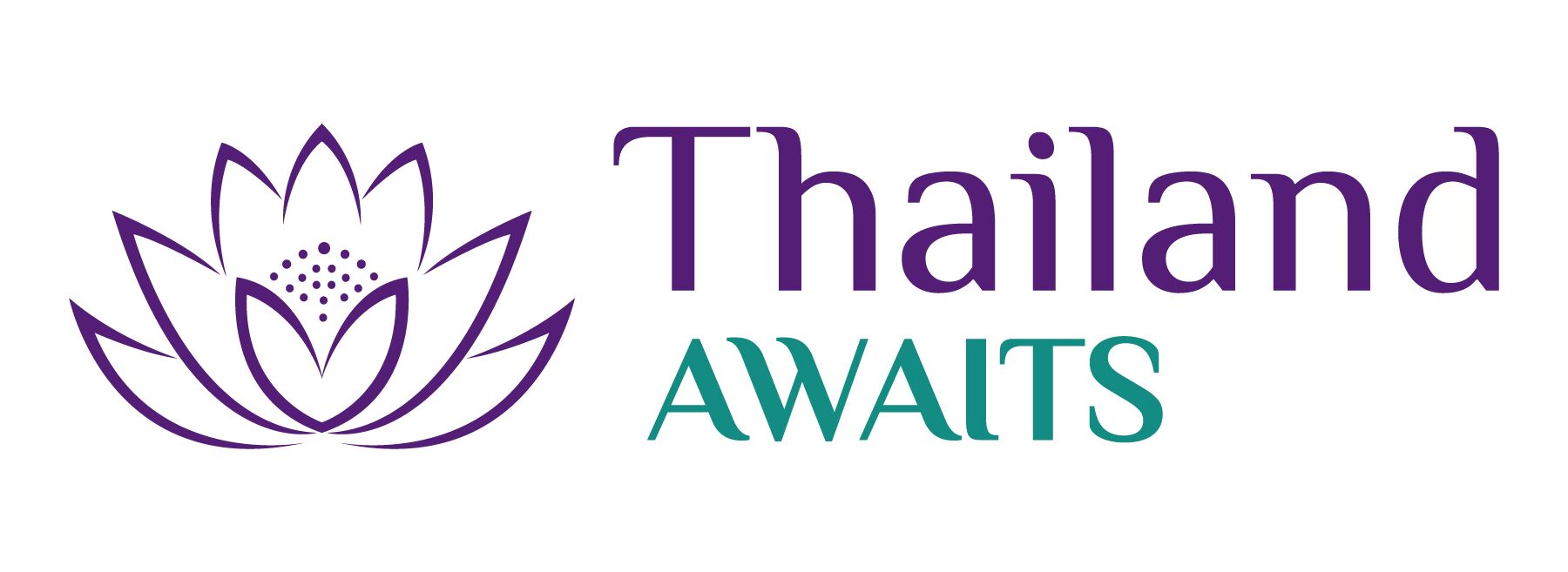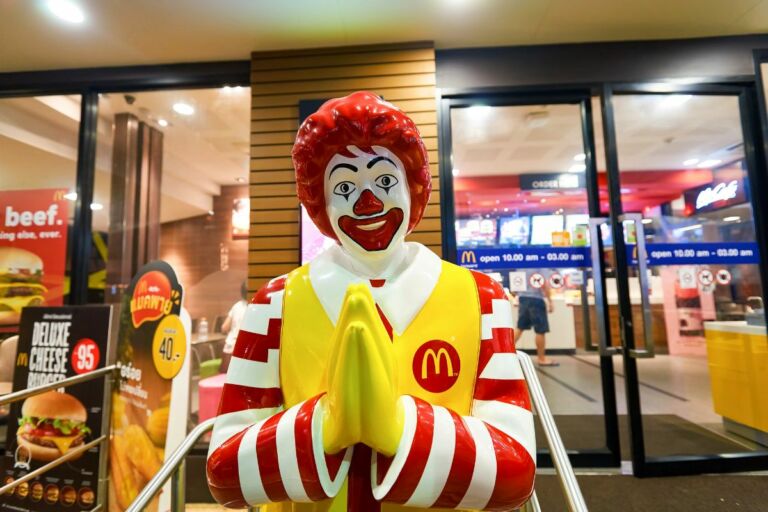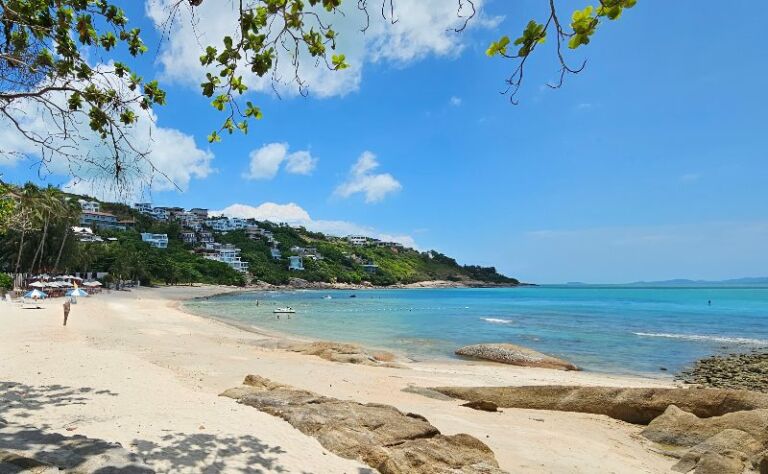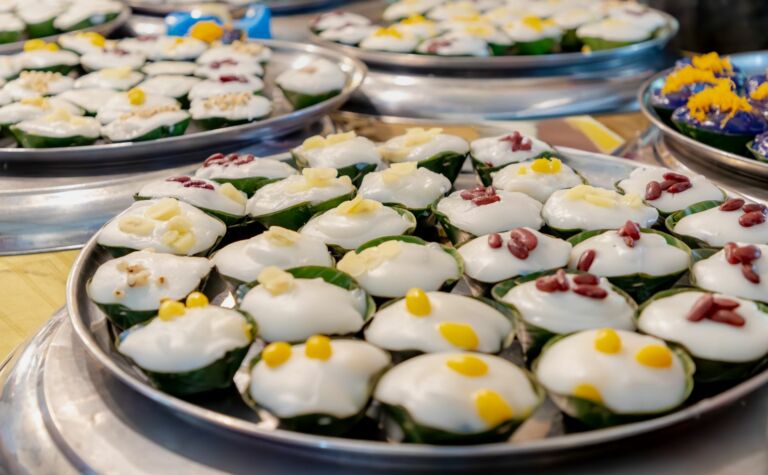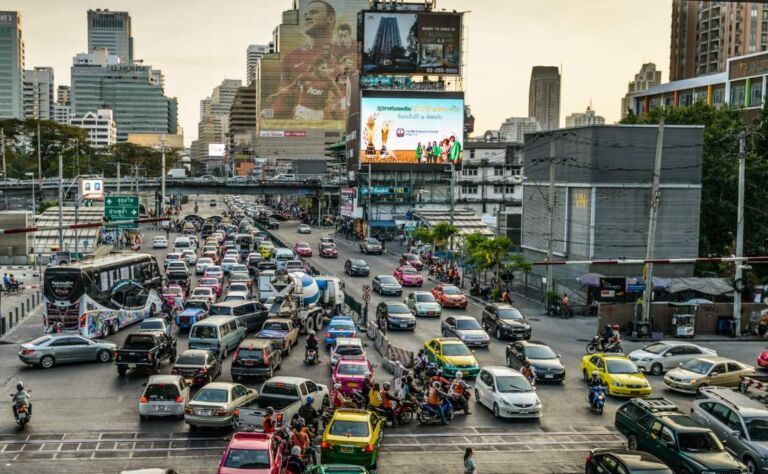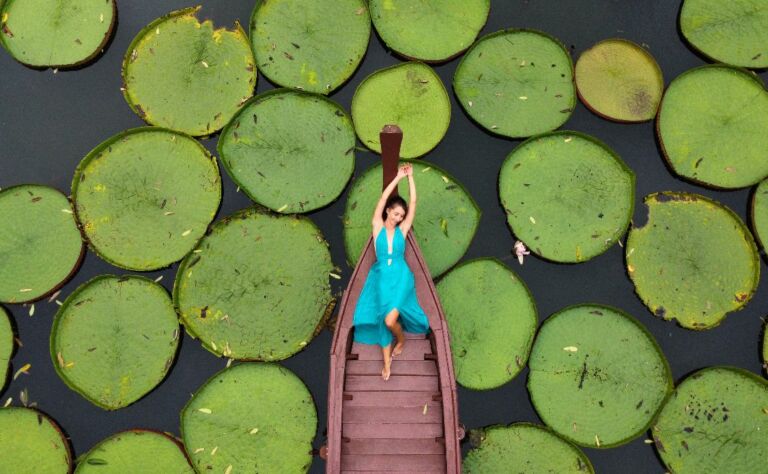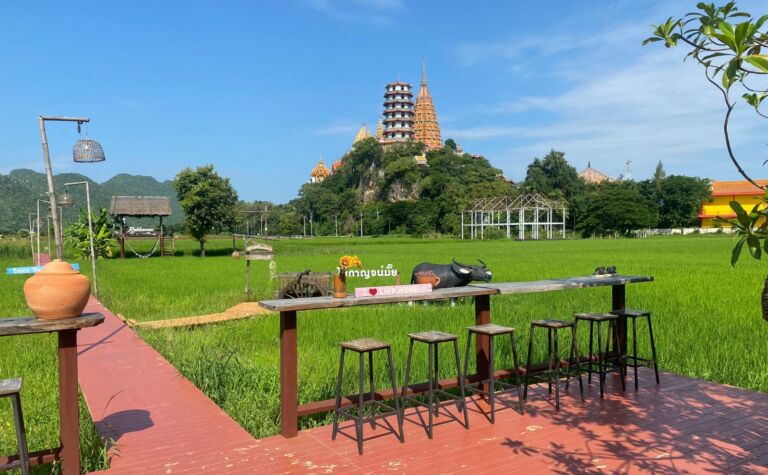Can You Drink Tap Water in Thailand? Safety Guide for Bangkok, Phuket & Beyond
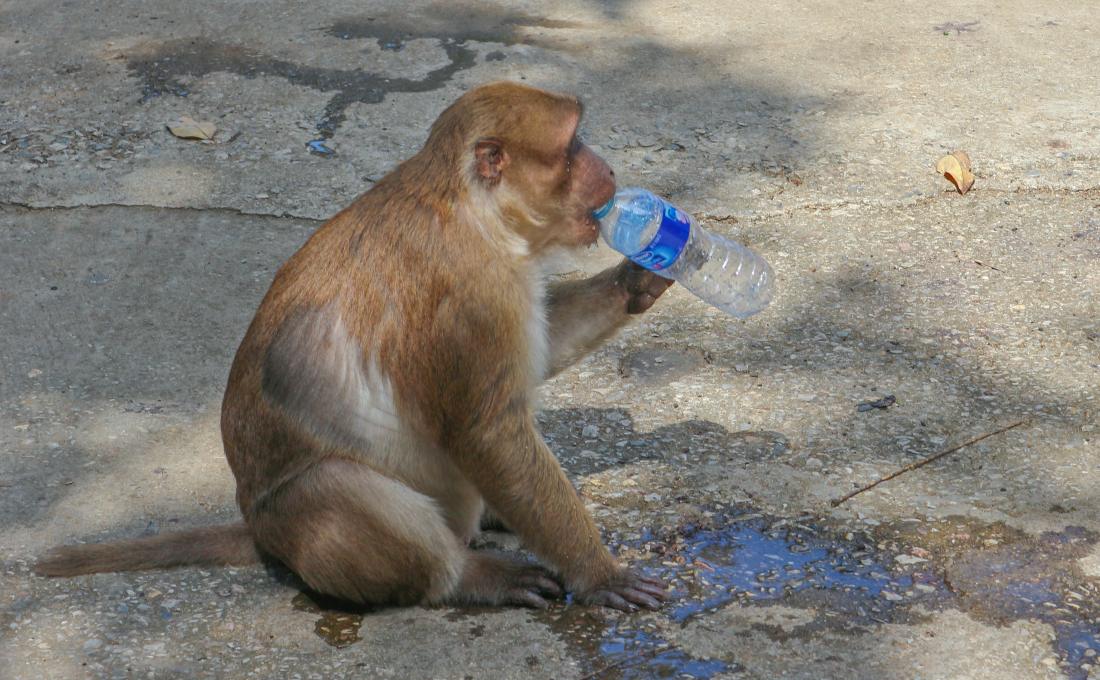
If you’re planning a trip to the land of smiles, you’re probably wondering: can you drink tap water in Thailand? In this article, you’ll get all the facts and practical information about drinking tap water, water quality, filtered and bottled water, should you use ice in your drinks, and is tap water safe for showering and brushing your teeth.
This page contains affiliate links. Please see our disclosure policy for more details.
Quick Answer: No, you shouldn’t drink tap water in Thailand. While Bangkok’s tap water meets Thai FDA standards, it contains traces of heavy metals within legal limits. Most visitors and locals drink bottled water, filtered water, or boiled tap water instead. For brushing teeth in major cities, tap water is generally safe, but use bottled water if you have a sensitive stomach.
Where Does Thailand’s Drinking Water Come From?
Thailand’s drinking water comes from two main sources: surface water (70%) and groundwater (30%).
Most of the water is collected from rivers, particularly the Chao Phraya and Mekong, and stored in almost 1000 dams across the country. The biggest is the Bhumibol Dam on the Ping River, part of the Chao Phraya system.
Groundwater is extracted from wells and springs, mainly in the Central Plains and Northeast regions. There are at least 20,000 registered wells in Thailand.
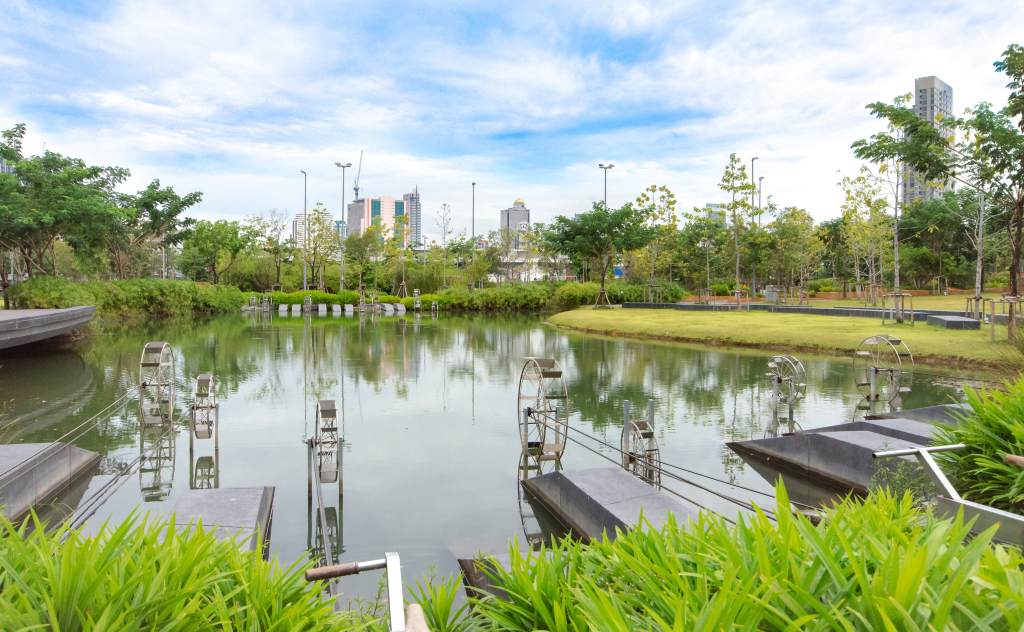
The Metropolitan Waterworks Authority serves over 11 million people in and around Bangkok. Their water treatment plants use sedimentation, filtration, and disinfection processes that align with World Health Organization standards. They conduct over 300,000 water quality tests annually.
Now you know where Thailand’s water comes from and how it’s treated, but will you get sick if you drink it?
Is Tap Water Safe to Drink in Thailand?
Tap water quality varies across Thailand. Some condos have water filters built into their taps, so it really depends on where you’re staying. Expats who live here long term often install filtration systems.
Is Tap Water Safe in Bangkok?
Bangkok’s tap water meets Thai FDA standards and is technically safe to drink. However, it contains traces of heavy metals like lead that are within legal limits in Thailand but higher than what most Western visitors are comfortable with.
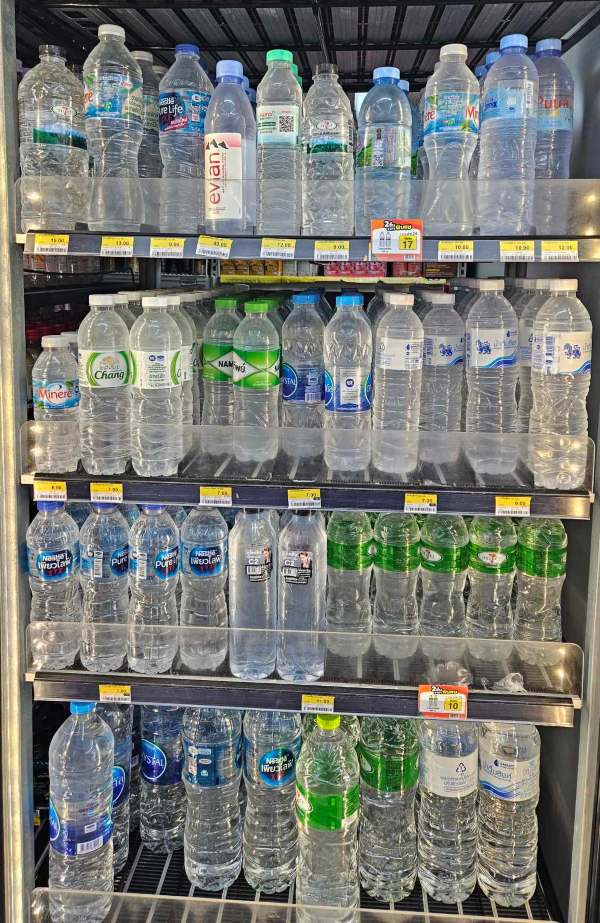
I don’t drink Bangkok tap water, and neither do most locals. That’s why Thais drink over 45 billion litres of bottled water annually.
Tap Water Safety in Rural Areas
In rural areas, water quality is lower due to less rigorous treatment and outdated pipe systems. Don’t drink tap water outside major cities.
Can Tap Water Make You Sick?
Drinking unclean tap water can cause illnesses like travellers’ diarrhea, typhoid, and Hepatitis A, especially for travelers unaccustomed to local microbes.
If you’re not accustomed to Southeast Asian food and water, use bottled water for drinking and brushing teeth.
Public Filtered Drinking Water Dispensers
Thailand has improved access to clean water with initiatives like providing free filtered tap water through public drinking fountains.
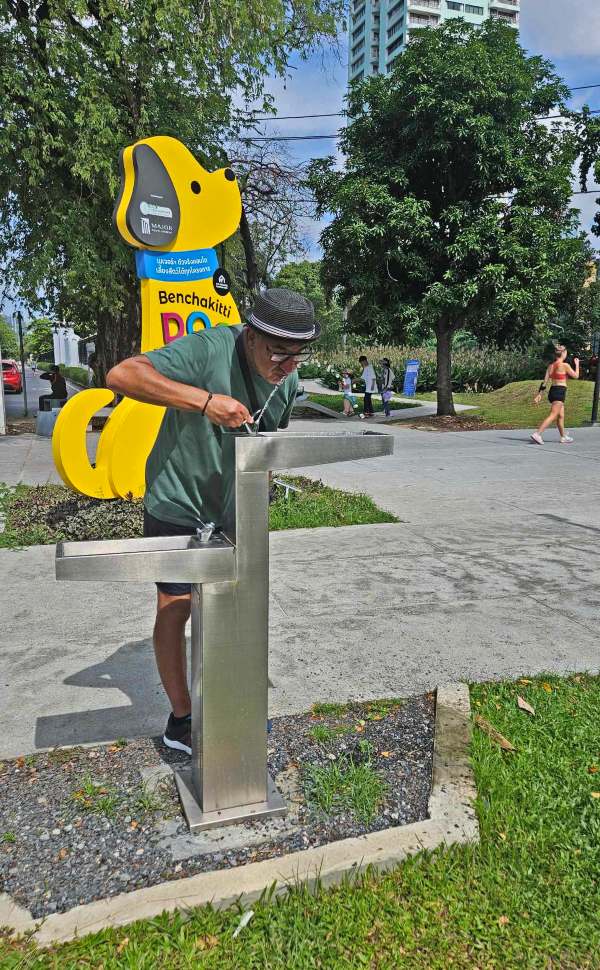
Filtered water stations in public spaces provide free and safe drinking water.
They are frequently maintained and monitored for quality. So, whether you’re at a park, museum, or any public space, you can fill up your water bottle for free and know you’re drinking safe and clean water.
Can I brush my teeth with Thailand tap water?
Tap water in major cities like Bangkok, Hua Hin and Phuket undergoes rigorous treatment and should be safe for brushing teeth. There’s more risk in rural areas with lower purification standards.
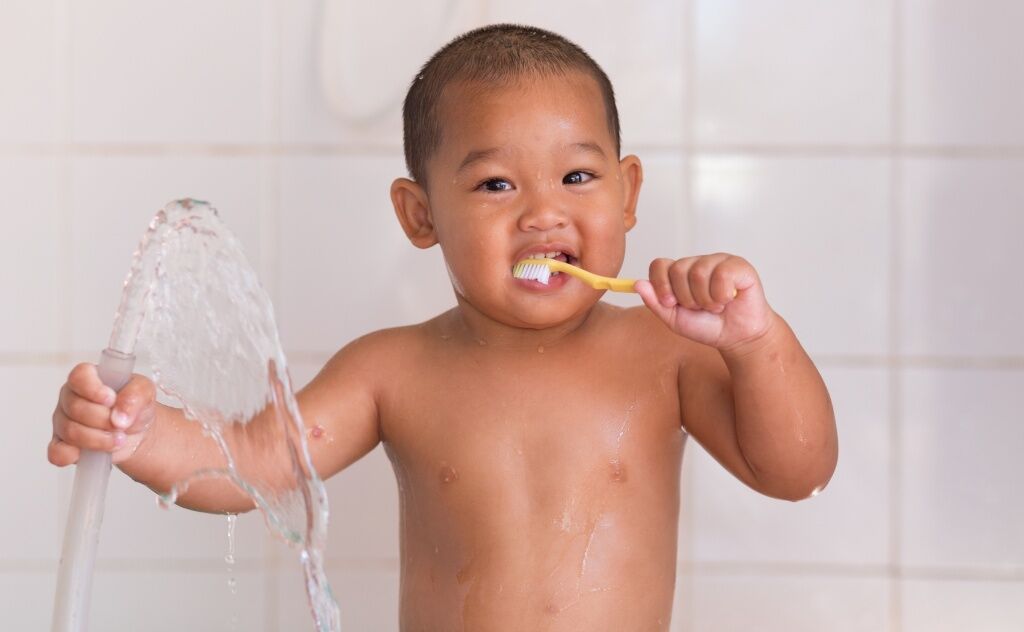
I used to boil tap water for brushing my teeth when I first arrived in Thailand, but now after two years of living here, I just rinse with tap water.
Most hotels provide bottled water in bathrooms and replenish it daily.
You can brush your teeth with tap water in Bangkok and other major cities, but bottled water is safer, especially during your first week when your stomach is adjusting to local conditions.
Can You Drink Boiled Tap Water in Thailand?
Yes, boiling tap water for at least one minute kills harmful bacteria and parasites, making it safe to drink. Many Thai people boil their tap water rather than buying bottled water. This is economical and environmentally friendly if you’re staying somewhere with kitchen facilities.
You can also use water purification tablets or portable purifiers to kill bacteria and parasites if you don’t have access to boiling water.
Should I drink Bottled Water in Thailand
As a visitor, bottled water is your safest option in Thailand. There are dozens of local brands and they all taste slightly different.
Bottled water ranges from 5-10 baht per bottle for local brands. I can honestly taste a difference between them – the 7-Eleven branded water is a good bet. If you prefer water that tastes like home, stick with international brands you recognise, although you will pay a lot for them.
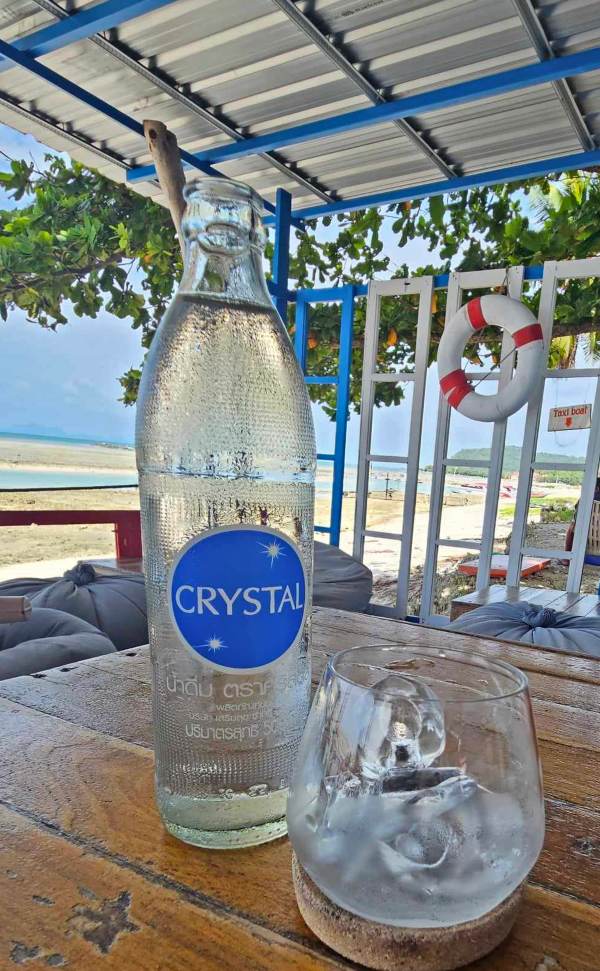
Always check the seal before drinking to make sure it hasn’t been tampered with.
The downside is environmental impact. Plastic bottle production and disposal creates pollution and waste.
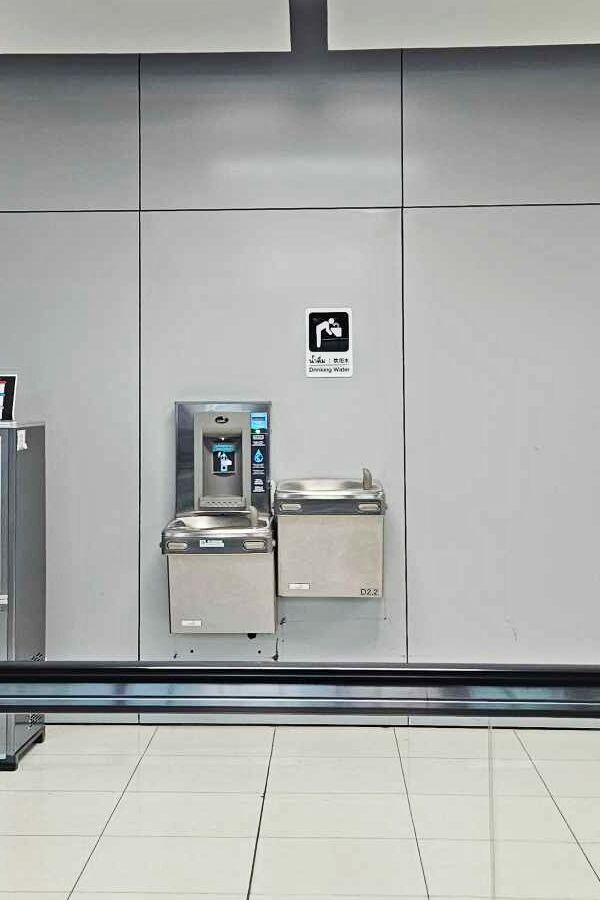
Consider bringing your own refillable water bottle. More places are installing water refill stations – you’ll find them at the airport, some shopping malls, and increasingly in public spaces.
Reusable Filter Water Bottles
A reusable water bottle with a built-in filter is more eco-friendly and lets you drink tap water safely.
The built-in filters use activated carbon, microfiltration, or UV sterilisation to remove contaminants, reduce chlorine taste, and eliminate harmful bacteria and protozoa.
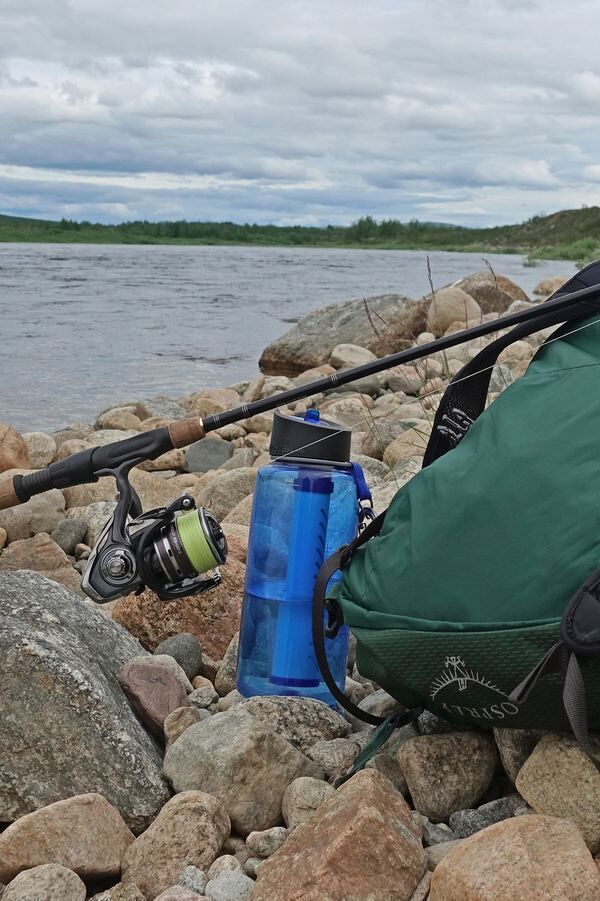
This means you can safely drink filtered tap water and you’re prepared for travel to remote areas where bottled water might not be available.
These bottles reduce your reliance on single-use plastic and save you money over time. They work whether you’re in a cafe in Bangkok or hiking in the mountains around Chiang Mai.
If you get ill
When travelling in Thailand, water safety matters. Even in popular tourist spots, water quality can vary, and drinking contaminated water can lead to stomach problems.
That’s why having good medical travel insurance is important. We recommend SafetyWing for digital nomads and travellers. Their insurance is affordable and flexible, offering coverage wherever you are in the world.
Whether it’s a minor stomach upset or something more serious, SafetyWing covers you, so you can explore with peace of mind.
Frequently Asked Questions about Tap Water in Thailand
Common questions we are asked about water safety in Thailand
Ready to start planning your Thailand trip? Our Facebook community Thailand Awaits is here to help. Join fellow travellers, get your questions answered by Thailand experts, and access free planning resources.
